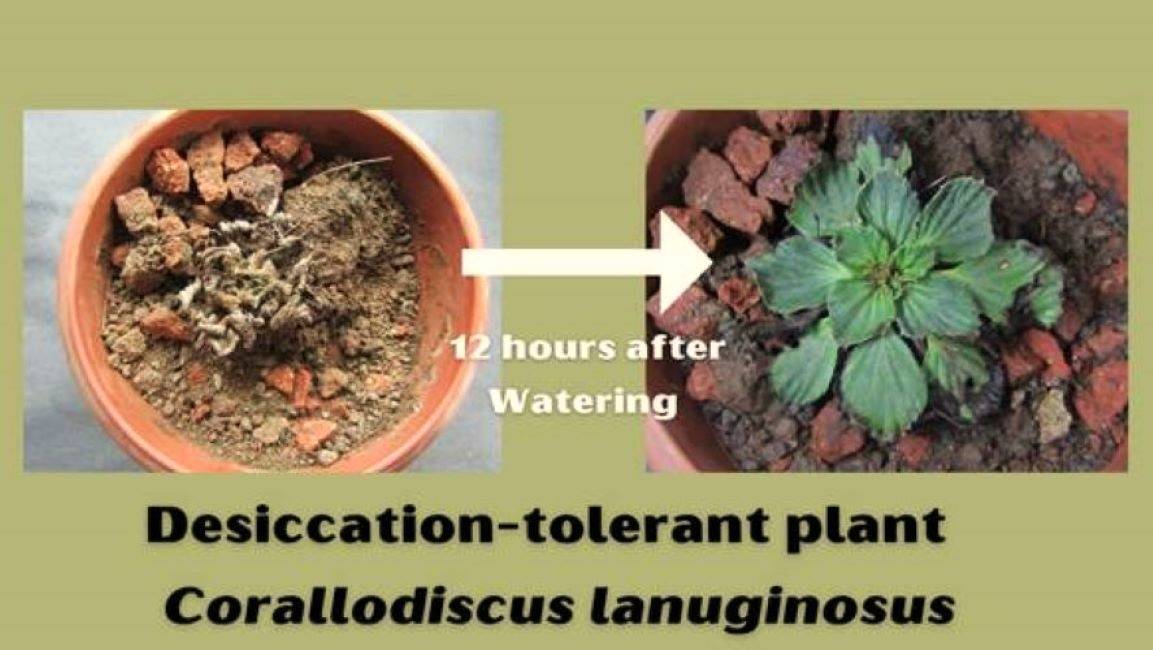
India's Western Ghats, known as a biodiversity hotspot, harbors a remarkable collection of 62 desiccation-tolerant vascular plant species. These plants possess unique characteristics that enable them to survive in arid and water-scarce environments, making them potentially valuable for agricultural applications.
Desiccation-tolerant (DT) plants have the extraordinary ability to endure extreme dehydration, losing up to 95% of their water content, and subsequently reviving themselves once water becomes available again. This resilience allows them to thrive in harsh conditions that would be inhospitable to most other plant species. In tropical regions, DT plants dominate rock outcrops, forming a vital part of their ecosystem.
However, despite the prevalence of rock outcrops in the Western Ghats, the knowledge and understanding of DT plants in the region have been relatively limited. Recognizing this gap, scientists from the Agharkar Research Institute (ARI) Pune, an autonomous institute of the Department of Science and Technology (DST), embarked on a comprehensive study to explore and document the DT flora in the Western Ghats.
The research, recently published in the Nordic Journal of Botany, sheds light on Indian DT plants, with a specific emphasis on the Western Ghats. The study provides an inventory of 62 DT species, a significant increase from the previously known nine species.
Among the species identified, 16 are indigenous to India, while 12 are exclusively found in the Western Ghats' rock outcrops. This highlights the region's importance as a global hotspot for DT plant diversity. Surprisingly, the researchers also discovered that tree trunks in partially shaded forests serve as crucial habitats for DT species, expanding our understanding of their distribution.
The team of researchers employed seasonal field observations and estimation protocols to scrutinize the DT properties of the identified species. The study reports nine new genera of DT plants, a noteworthy contribution to global DT plant research. Notably, the study records the first-ever observation of the DT properties of the gesneriad Corallodiscus lanuginosus and the hydration process of the epiphytic DT angiosperm, Tripogon capillatus, captured through time-lapse videos.
Led by Dr. Mandar Datar, the research team collaborated with Dr. Stefan Porembski from Rostock University in Germany, a renowned expert on tropical rock outcrops. Their collaborative effort has significantly advanced our knowledge of DT plant species in the Western Ghats.
The findings of this study provide valuable insights into the biodiversity and ecology of the Western Ghats. Understanding the mechanisms underlying the ability of DT plants to tolerate dehydration could have practical implications for agriculture. By developing crops that exhibit similar drought-resistant traits, farmers may be able to mitigate the impact of water scarcity and reduce water consumption.
Furthermore, the identification and documentation of these DT plant species are essential for their conservation. Preserving the unique flora of the Western Ghats not only contributes to maintaining the region's ecological balance but also safeguards the potential benefits these plants may offer for sustainable agriculture in the future.
The study by the ARI Pune scientists marks a significant step forward in unravelling the mysteries of desiccation-tolerant plants, opening new avenues for research, conservation, and potential agricultural advancements in water-stressed regions.
(Source: PIB)









